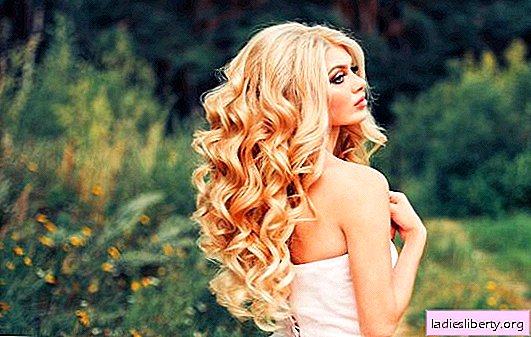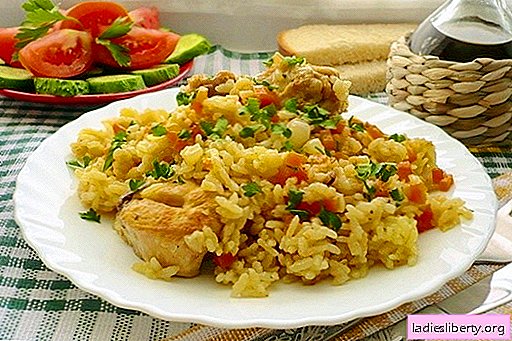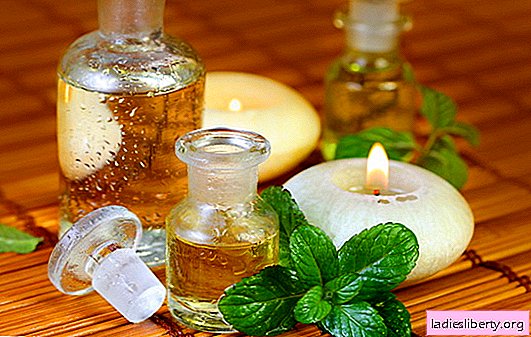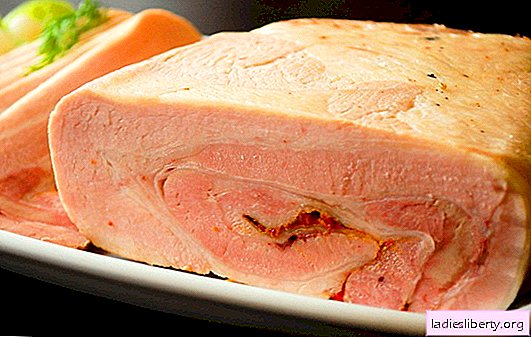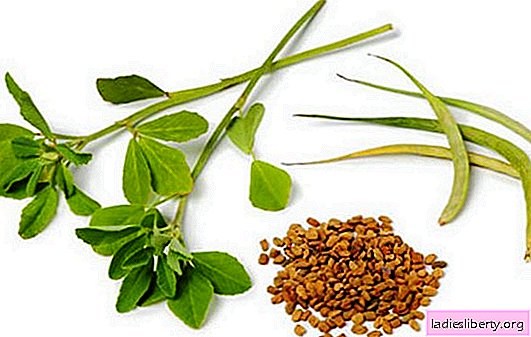
Helba is an annual plant from the legume family, popularly known as fenugreek. The grass has pale purple inflorescences in which pods with seeds are formed. The ripened fruits have been used for many centuries in different countries not only to strengthen the body, but also to rejuvenate it.
Helba: Useful properties and calorie content
The beneficial properties of helba are hidden in the chemical composition of both seeds and the plant as a whole. The plant is rich in organic substances, vitamins and oils:
Flavonoids - help relieve spasms, thanks to anti-inflammatory and bactericidal properties, accelerate wound healing, prevent and fight against neoplasms.
Nicotinic and folic acids - the first normalizes the functioning of the gastrointestinal tract and improves protein metabolism; the second - increases the level of iron in the blood, prevents atherosclerosis.
Essential oils - their targeted effect on viruses, bacteria and fungal infection allows you to quickly cope with the disease. They also have sedative and immunological properties.
Resins, as well as essential oils, are involved in the fight against colds and in wound healing.
Dietary fiber - remove cholesterol and bile acids from the body, slow down the process of sugar absorption in the blood, remove heavy metals and toxins, normalize the intestines.
Vitamins A, C and Group B - maintaining immunity, fighting viruses, normalizing the level of iron in the blood, improving brain function.
Fatty acids - protection against failures in the cardiovascular system, strengthening the digestive tract, nourishing for the organs of vision and memory.
Lecithin and tannin are necessary to maintain and maintain the health of all human organs, and in case of illness, to help restore faster.
Potassium, zinc, copper, magnesium, sodium, phosphorus, manganese - serve to strengthen and coordinate the work of all internal organs.
- 100 g of fenugreek seeds contain 323 kcal.
Nutrient Content:
• Protein: 23 g
• Fats: 6.43 g
• Carbohydrates: 58.36 g
Helba: useful properties for various diseases
Helba is one of the plants that is used as a seasoning, as a raw material for tea, and as a remedy for many diseases.
Decoctions of seeds and infusions of the deciduous part of the helba are very useful for the prevention of atherosclerosis and myocardial infarction. With their use, blood vessels are cleaned and strengthened (become elastic), a normal heart rhythm is established.
Fenugreek tea is indicated for people with anemia. Tea is quickly absorbed, which allows you to quickly enrich the blood with iron and quickly relieve the symptoms of the disease.
With pathologies of the digestive tract, the action of helba is based on cleansing, enveloping and healing. The digestive organs are cleaned of toxins and undigested food debris. Enveloping the walls of the stomach and intestines with mucus, the decoction heals damage of a different nature. These beneficial properties help fight gastritis, peptic ulcer and duodenal ulcer.
By exerting a positive effect on the liver, Helba helps it produce the right cholesterol, which cleanses the blood from accumulations of bad cholesterol.
Helba decoctions are a good strengthening agent for the nervous system. These teas are regularly taken in the presence of stressful situations in order to minimize their effect on the whole body.
Fenugreek teas and tinctures have a diuretic effect, which helps cleanse the kidneys and bladder. With pyelonephritis and urolithiasis, these agents soften and remove stones and sand.
Helba is also used as part of drug collections for diseases of the respiratory organs, skin (eczema, psoriasis), fever and to strengthen immunity.
Helba masks and decoctions are also widely used in cosmetology. Bean paste treats the scalp to eliminate dandruff and stop baldness. Fenugreek masks and compresses in combination with aloe and honey not only moisturize and tighten the skin, but also have anti-inflammatory and cleansing effects.
Useful properties of helba for women and men
Helba is one of the most potent plants on the hormonal and reproductive functions of both men and women.
Saponin activates testosterone production, making fenugreek a powerful aphrodisiac. As part of other herbs, Helba is used by men as a means of restoring potency.
Due to its composition rich in minerals, enzymes and vitamins, helba beans are used to improve the composition of male seminal fluid and treat infertility.
But it is important to remember that everything is useful in moderation, taking an excessive amount of helba for men can turn into the opposite effect, since the plant also contains analogues of female hormones.
Diosgenin is a part of helba beans and is an analogue of the female hormone estrogen. This quality allows the use of fenugreek in the natural regulation of the hormonal balance of a woman without resorting to synthetic substances.
Acting on the walls of the uterus as a contracting agent, Helba restores the regular female cycle. A decoction from this plant is used as an anesthetic and anti-inflammatory agent for dysmenorrhea. These same properties of the plant are very useful in the recovery period after childbirth. It is proved that cool baths and warm compresses in one to two days after childbirth contribute to the rapid healing of damaged tissues and restore the tone of the internal muscles of the woman in labor.
Helba broth for nursing mothers is very useful, especially if a woman feeds more than one child. Fenugreek components increase the amount of milk produced up to 5 times, stimulating the synthesis of prolactin in the pituitary gland.
Helbo phytohormones, acting on the female hormonal system, contribute to breast augmentation. To do this, prepare decoctions for oral administration, as well as concentrated decoctions and fenugreek oil for baths and external use.
Helba: contraindications
As with all natural medicines, the contraindication for the use of helba is excessive consumption. 3-4 cups of tea is the daily norm. Helba beans are not recommended for food if they are stored for more than three months.
Conditions in which it is contraindicated to take medicine and food, which include helba:
• pregnancy;
• increased blood coagulability;
• taking coagulants;
• allergy;
• gastritis during exacerbation;
• periods of exacerbation of liver and pancreas diseases (cholecystitis, liver injuries, pancreatitis);
• neoplasms of any origin in the mammary glands and organs of the reproductive system (fibroids);
• endometriosis;
• diarrhea;
• age up to 7 years.
Continuous use of helba-based medications is also contraindicated - the course should not exceed a period of 6 weeks. The interval between courses should be at least 2 weeks.
Helba is a plant, before use of which it is necessary to consult a doctor, since when treating one disease, another can be aggravated.


